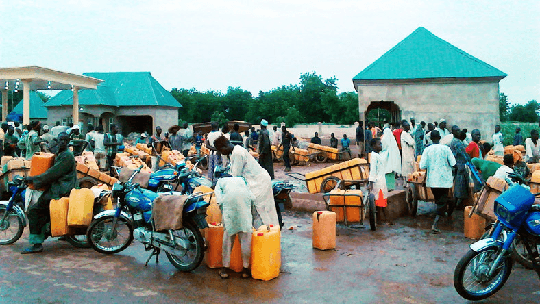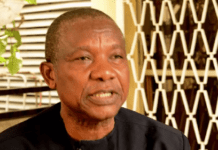Access to safe drinking water is considered one of the essential things needed for human survival in any clime, but it is heart-shattering to know that 1 in 3 persons around the globe is denied this crucial item, which ought to be provided for by the government of every nation for its citizens.
The new report of the Joint Monitoring Programme of the United Nations Children Fund (UNICEF) and the World Health Organisation (WHO) on Progress on drinking water, sanitation and hygiene: 2000-2017, was an eye-opener to the fact that more than a quarter of the world’s population still lacks safe drinking water.
While the report noted that some countries saw improvements in accessing water during the period under review, but it sharply cautioned that it is not yet uhuru, as mere access is not enough.

Again, a national survey conducted by the Nigeria’s Bureau of Statistics and UNICEF recently indicated that millions of households in Nigeria do not have access to clean water sources. While the supply of clean water in Nigeria has improved recently, about 60 million of the population, which amounted to 3 in 10 Nigerians still lack access.
“If the water isn’t clean, isn’t safe to drink or is far away, and if toilet access is unsafe or limited, then we’re not delivering for the world’s children,” said Kelly Ann Naylor, associate director of Water, Sanitation and Hygiene, UNICEF.
It further revealed the type of water accessible to certain number of people, while it called the governments of nations to rise to this unsavoury scenarios, else, the attainment of universal access by 2030 may be jeopardised.

“It is estimated that 1 in 10 people (785 million) still lack basic services, including the 144 million who drink untreated surface water. The data shows that 8 in 10 people living in rural areas lacked access to these services and in one in four countries with estimates for different wealth groups, coverage of basic services among the richest was at least twice as high as among the poorest”, the report reads.
Going forward from here, the WHO Director, Department of Public Health, Environmental and Social Determinants of Health, Dr Maria Neira, stressed the need for countries to double their efforts on sanitation and provision of safe water for their citizens.
“If countries fail to step up efforts on sanitation, safe water and hygiene, we will continue to live with diseases that should have been long ago consigned to the history books: diseases like diarrhoea, cholera, typhoid, hepatitis A and neglected tropical diseases including trachoma, intestinal worms and schistosomiasis. Investing in water, sanitation and hygiene is cost-effective and good for society in so many ways. It is an essential foundation for good health”, she stated.
Coming home to Nigeria, the story is same, and perhaps worsen, as the provision of portable water for the citizens has long been relinquished by the government to its citizens, as it appears to be a tall order, but the same government keep inflating tax rates for its helpless citizens.
Although there were arguments from some quarters that the 60 million figure was underestimated, owing to the fact that more of Nigerian population live in the rural areas, as postulated by the World Bank’s statistics which states that about 51 percent of Nigerian population reside in the rural areas and it is common knowledge that the rural population don’t have access to clean water.
However, access to water in Nigeria differs from one region to the other, because while some parts of the West and East have access to water for domestic use, though not safe water for drinking, the northerners can hardly boost of access to any water, as they have to trek miles before getting water for daily use.
The story of Ruth Samuel and her four children, who reside in an uphill settlement on the outskirts of Abuja, lend credence to the difficulties in getting water in the northern part of the country.
She explained that on a daily basis, they spend time scooping water from a ground spring. “Like in the dry season, we wake up by 2, 3 a.m., and before you get there, you will not see water, you’ll have to wait”.
In order to get out of this horrible scenarios, where these Nigerians found themselves, experts have charged the Nigerian government to resume its constitutional obligation of providing for the welfare of its citizens.
According to the Head, Nigeria’s Integrated Water Resources Management Commission, Reuben Habu, accessing water is a critical problem in Nigeria, but the major challenge is funding. He assured that if government can allocate more funds for the provision of water, definitely there will be improved infrastructural development, which will guarantee adequate provision of water for the population.














meds without a doctor prescription generic drugs without doctor’s prescription
tadalafil online: http://tadalafilonline20.com/ generic tadalafil united states